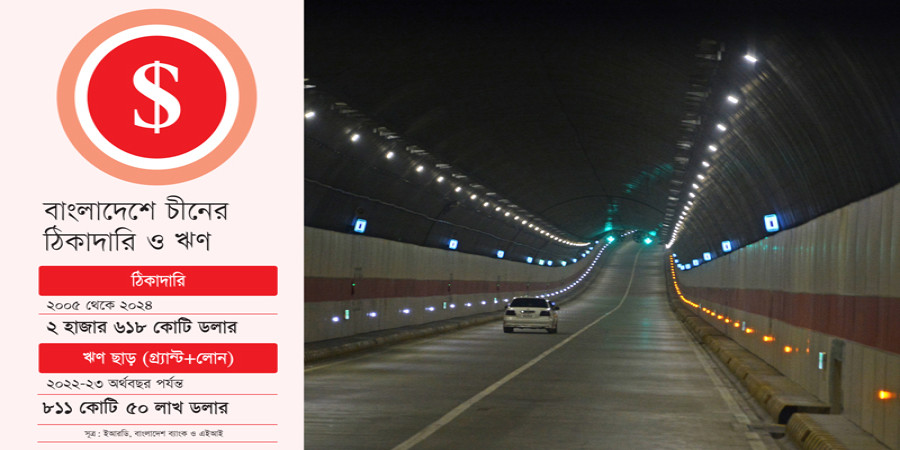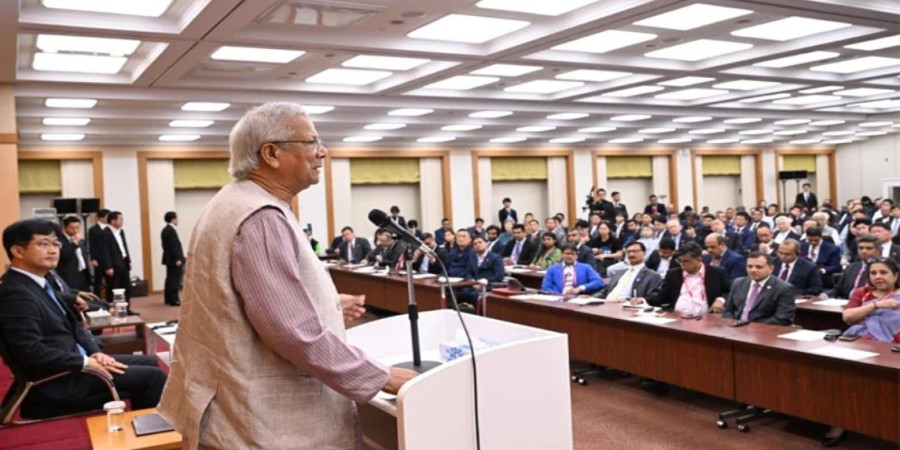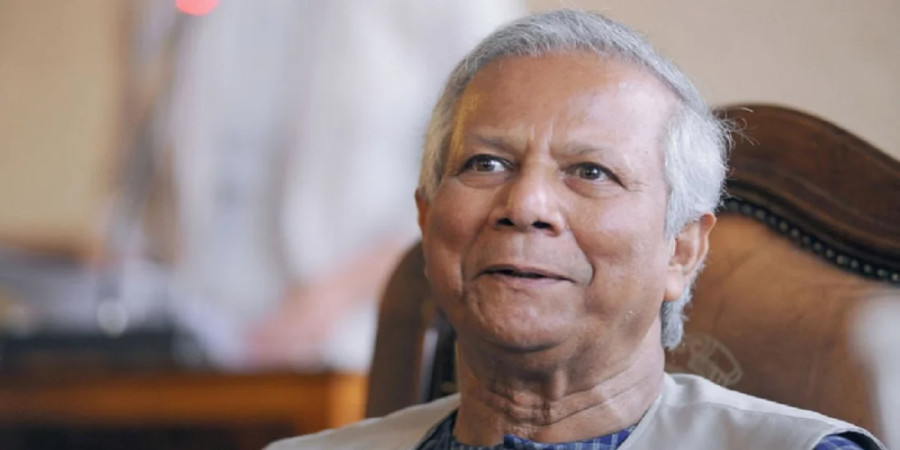
ছবি: Photo: Collected
In the last decade and a half, China has emerged as the largest beneficiary of Bangladesh's development projects, securing the most contracts for infrastructure works. Much of this has been funded by loans from China, with the total amount, including both loans and contracts, reaching a staggering $30 billion.
The bulk of these projects, particularly in the transportation sector, have been executed under loans provided by China. However, upon completion, many of these projects have failed to generate enough revenue to cover operating and maintenance costs, let alone pay off the interest and principal on the loans. This has placed a significant strain on Bangladesh’s national treasury.
According to sources from Bangladesh Railway, the Ministry of Roads and Bridges, the Public Works Department, the Ministry of Shipping, the Power Division, and several international think tanks, China has been awarded over $26 billion worth of contracts from 2005 to 2024. Most of these contracts were signed in the last 15 years, during Prime Minister Sheikh Hasina’s administration. Approximately one-third of these contracts are related to the transport sector, valued at $8.47 billion, with over $5 billion allocated for rail connectivity projects.
Diplomatic and financial ties between Bangladesh and China were established in 1975. According to data from Bangladesh's Economic Relations Division (ERD), China has committed over $10 billion in loans and budget support for various projects since the establishment of these ties. By the 2022-23 fiscal year, Bangladesh had received $8.115 billion in loans from China.
However, critics argue that many of the high-cost projects undertaken by Bangladesh under Chinese financing have not yielded the expected benefits. In fact, the costs of these projects have increased significantly, raising concerns over the long-term financial sustainability of the country. Recently, Bangladesh's Foreign Affairs Advisor, Touhid Hossain, visited China for bilateral talks, where he discussed reducing interest rates on loans and extending repayment periods.
According to analysts, while China has benefitted the most from these expensive projects, Bangladesh has not seen much economic gain. The country has taken loans from China for various infrastructure projects, including the Padma Bridge Rail Link and the large Chattogram Tunnel project. Even the Padma Bridge, which was funded by Bangladesh's own resources, was constructed by a Chinese company. Though these projects were intended to benefit Bangladesh in the long term, they have instead increased the country’s financial burden.
Dr. Moinul Islam, a former professor at Chittagong University’s Department of Economics, told the Bonik Barta newspaper, “The suppliers' credit from China has allowed corruption to flourish among the influential figures of the previous government. One weakness of suppliers' credit is that the donors do not have control over the borrowing government's corruption. This loophole has benefited the previous government, as they inflated the costs of projects and embezzled large sums of money.”
One of the key projects financed by China is the Karnaphuli Tunnel. The project, which cost 106.89 billion BDT (approximately $1.2 billion), included a loan of 60.7 billion BDT. Bangladesh has a repayment period of 15 years for this loan, with an annual repayment of 40.5 billion BDT, excluding interest. However, according to the Bangladesh Bridge Authority, the tunnel has only generated approximately 37 crore BDT in revenue in the first year of operation, while its annual operational and maintenance costs exceed 136 crore BDT, resulting in a substantial financial loss.
Another major project funded by China is the Padma Bridge Rail Link, which has a total cost of 39,246 crore BDT (approximately $4.5 billion), with a loan portion of 21,036 crore BDT. According to ERD, Bangladesh will have 20 years to repay this loan, including a 6-year grace period. The repayment amounts to approximately 1,502 crore BDT per year, with an interest rate of 2% and a service charge of 0.25%.
Train services on the Padma Bridge Rail Link partially began in November 2023. The Bangladesh Railway has reported that the revenue generated from three intercity trains between January and June 2024 was 36.71 crore BDT. However, due to insufficient revenue to cover operational costs, the government will need to provide subsidies to meet the loan repayments starting from April 2024.
International relations experts and economists argue that these projects were chosen based on political considerations rather than national needs. Proper evaluations of the projects were not conducted, and many were chosen to benefit a select group of individuals rather than the broader population. As a result, Bangladesh has failed to capitalize on the potential benefits of these projects, while China has emerged as the primary beneficiary through its extensive involvement in the contracts.
Dr. Delwar Hossain, a professor in the Department of International Relations at Dhaka University, told Bonik Barta, "If we can negotiate with donors like China while keeping national interests in mind, we can make these loans and grants more favorable to us. We need to assess whether these projects provide short-term or long-term benefits and ensure that there is no corruption during their implementation. Unfortunately, these factors were not considered, which is why the costs of these projects have ballooned."
Ambassador M. Humayun Kabir also emphasized the importance of continued cooperation with China to ensure the success of ongoing projects. He explained, “There must be mutual benefits in any economic relationship, and this is true for our relationship with China. They are able to provide the resources and technology we need, and in exchange, they benefit from the economic activities generated by these projects.”
However, experts also stress the need for Bangladesh to improve its governance, project evaluation, and negotiation skills to avoid the pitfalls of these high-cost projects. Without these improvements, the country may continue to face financial challenges while its partners, particularly China, reap the rewards of these developments.
The ongoing diplomatic engagement with China, especially after the recent visit of Bangladesh's Foreign Affairs Advisor to China, signals that both countries are keen on maintaining and expanding their cooperation. Discussions on healthcare, including the construction of a hospital in Bangladesh with Chinese assistance, highlight the evolving nature of bilateral ties. As Bangladesh continues to navigate its financial obligations and development goals, the challenge will be ensuring that future projects deliver tangible benefits for the country and its citizens.
repoter






